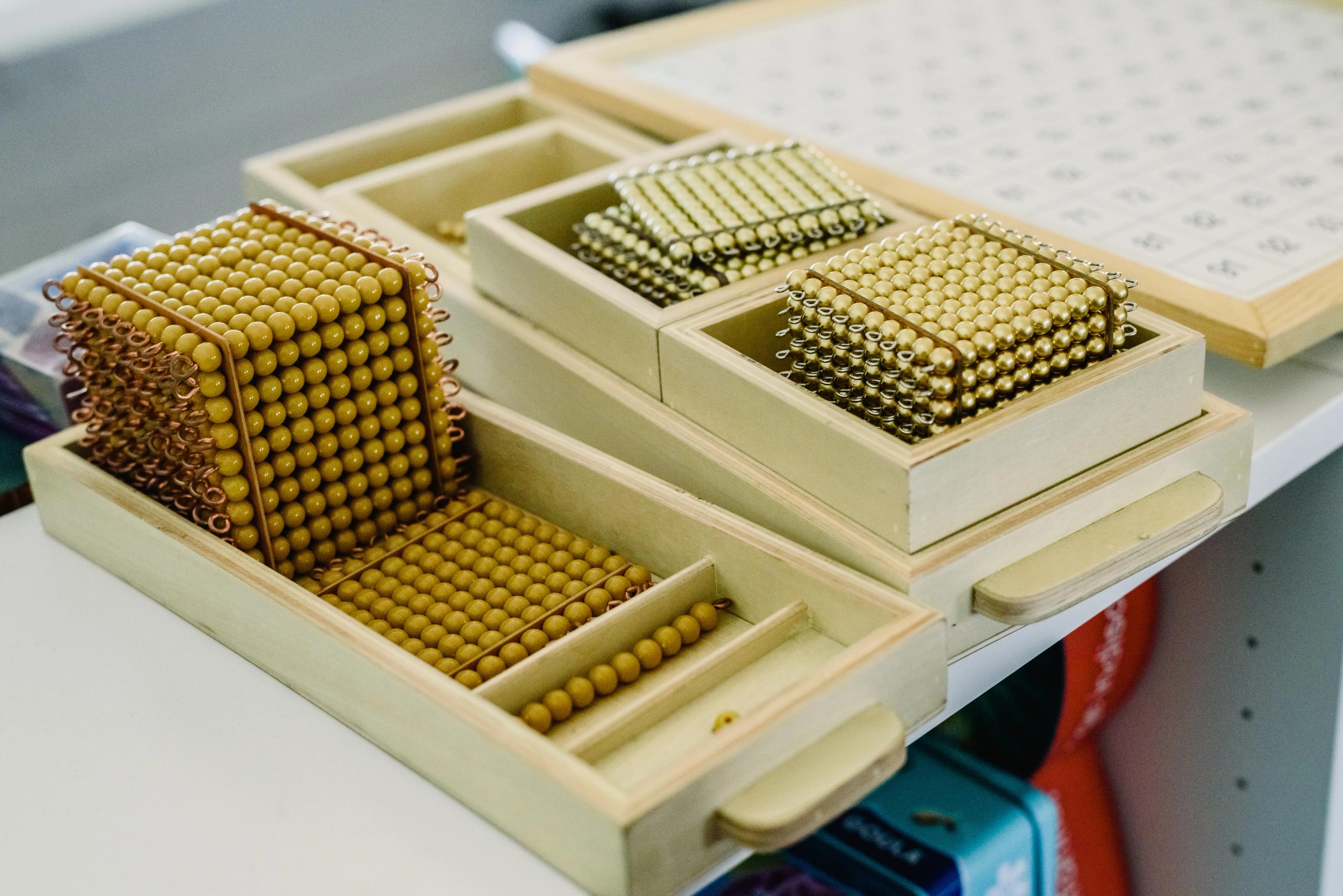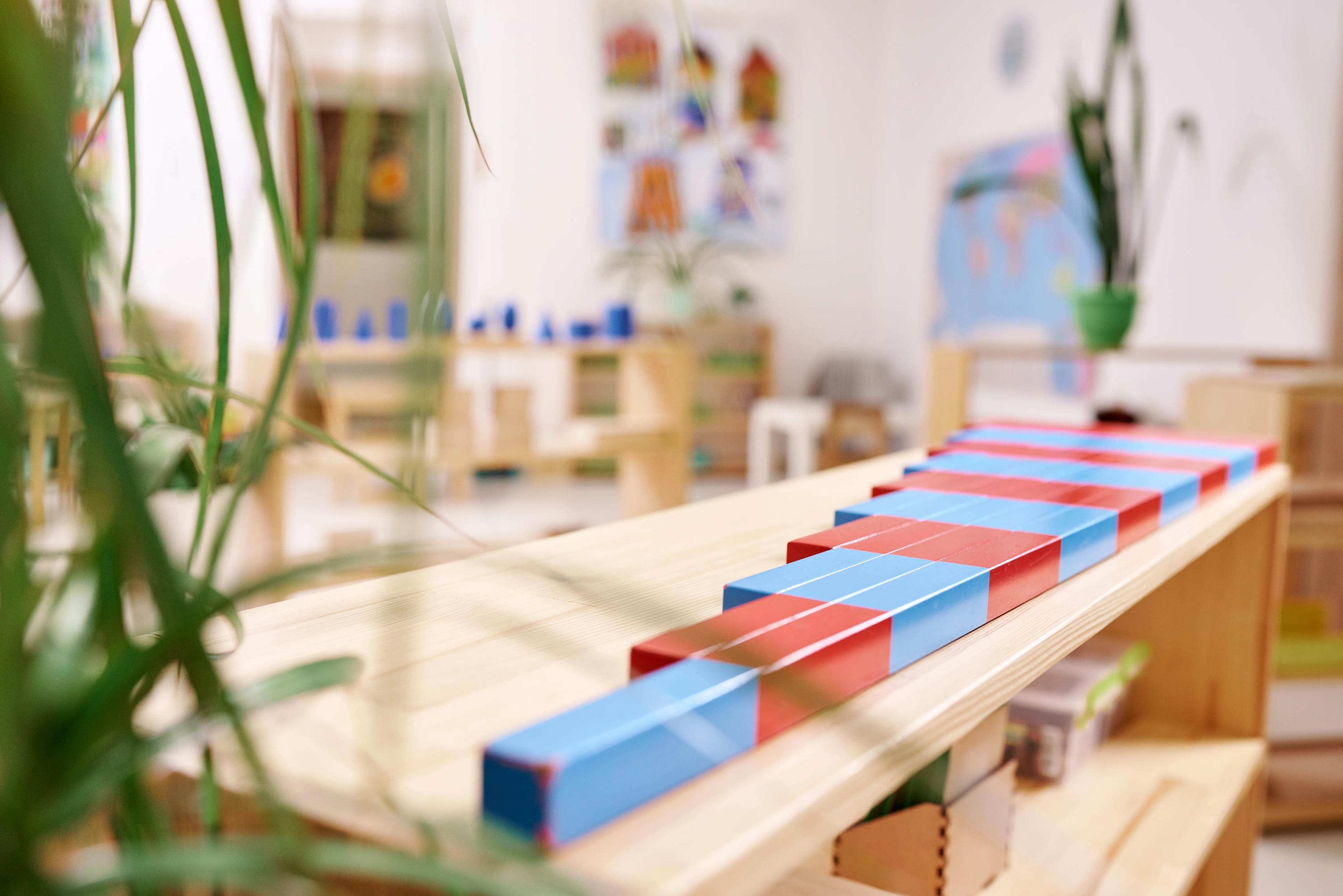Math is a fundamental part of our daily lives and a critical component of our education. In a Montessori environment, math is approached in a unique and interactive way that is designed to promote understanding and encourage students to enjoy the subject.
The Montessori method views math as a series of concepts that build upon each other, with the aim of helping children develop a deep understanding of mathematical principles and a love for the subject. In this environment, students are encouraged to learn through hands-on experiences, observation, and exploration.

One of the key principles of Montessori mathematics is to start with concrete examples and gradually move towards abstract concepts. This allows children to develop a strong foundation in math and understand the logic behind mathematical principles. For example, children are first introduced to physical manipulatives such as blocks and beads to count, add, and subtract before moving on to more abstract concepts like place value and multiplication.
Another important aspect of Montessori math is the use of Montessori materials. These specially designed materials are used to help students understand mathematical concepts in a hands-on and interactive way. They are also designed to be aesthetically pleasing, which adds to the overall enjoyment of learning math. For example, children might use a set of color-coded wooden blocks to understand addition and subtraction, or a set of geometrical shapes to explore symmetry and angles. Also, you could see students engaging with sensorial materials, particularly the pink tower, brown stair, and red rods, which are designed with precise decimal-based gradations.

In a Montessori environment, children are also encouraged to work at their own pace. This allows each student to progress at a pace that is comfortable for them, without the pressure of keeping up with the rest of the class. This encourages students to take their time and understand the material thoroughly, instead of just memorizing facts and formulas.
One of the benefits of the Montessori approach to math is that it helps children develop a love for the subject. By providing a hands-on, interactive, and exploratory environment, students are encouraged to engage with the material and develop a deep understanding of mathematical concepts. This love of math can carry over into later life, helping children perform better in school and in their careers.
In conclusion, the Montessori approach to mathematics is a unique and effective way of teaching the subject. It helps children develop a deep understanding of mathematical concepts and a love for the subject, which can carry over into later life. By providing a hands-on, interactive, and exploratory environment, students are encouraged to engage with the material and develop a strong foundation in math.

